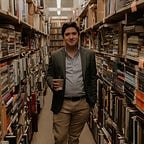The Destructive Potential of Moral Clarity
On Wednesday, January 6th, the world watched as white nationalists stormed the U.S. Capital in order to overturn the 2020 presidential election in favor of their candidate, Donald Trump. Many, myself included, experienced a sharp wave of moral clarity. Overturning a free election is evil. Full stop. And then the social media deluge began. I watched close friends vent their righteous anger. I myself fumed at a-factual comments that trade reality for fiction. “This is it’’, we feel, “No more compassion, we must act.”
This feeling of moral clarity is powerful. What should we do with our feelings of self justification and anger towards those who intentionally or unintentionally participate in injustice? As Christians, we are called to love our enemies — yet what did this look like? Is there a line? How do we navigate exclusion and embrace — dissent and solidarity? These are the questions that I’ve been asking myself. No one has the direct answer to these questions, but as I’ve pondered them I’ve become worried that this sense of moral clarity we feel will turn us against the very people we need to embrace and call into justice.
I believe our own moral clarity has the potential to lead us to participate in the very cause of division and communal injustice and violence. This is the argument of sociologist and anthropologist Rene Girard’s landmark book I See Satan Fall Like Lightning. Rene Girard attempts to understand the very source of violence and division. He argues that the process of “othering” is the very cause of our communal problems and is the foundation for human violence. By “othering” he means the process where we localize evil, problems, or division as caused by a specific group. Those liberals. Those Trump supporters. Othering is not where we correctly identify an individual or movements problems or contributions to injustice — it is where we decide that a group is the source of the problem. In this process we decide “their side” is the problem and “our side” is the solution.
Girard argues that when we “other” when we say those people are the source of a society’s problems, we are participating in the very division and violence that we, with such absolute moral clarity, denounce. It would take a while to explicate Girard’s complete anthropology and understanding of violence, but Girard’s thesis is clear — in order to reconcile a community we (the “right” side, to be crass) must be willing to own up to our own contribution, however unequal or small and refuse to dehumanize a group or individual. Because othering is dehumanization — it reduces human beings to agents of harm.
I bring up Girard and othering because I’m afraid that the capital riots will lead us further into a feeling of hatred, anger and ultimately exclusion. If we want to be part of the solution to our country’s continuing issues, you must be an agent of real love and community towards those we would deem “other”. We must diffuse division by radical community, but just as importantly we must realize and name our own participation in violence. But they did this. Yes, they did — it’s wrong and we must say so. What I am saying is that every time we have ever said those people, where we have othered, we have participated in a form of violence. The hidden truth is that no community can be the source of our society’s problems. No person is the source of collective violence. This is not an equivocation, Donald Trump has caused more division than anyone else I can think of in recent memory. Yet, I’m talking not to Donald Trump, but to you and me.
Where do we go from here? How do we quench the destructive potential of moral clarity with radical humility and community? Acknowledging our own participation in violence requires deep spiritual resources. The Christian tradition speaks of Jesus Christ as the “true human being” — the new Adam. He is not only an example; he is the start of a new way of being human through the cross and resurrection. Jesus Christ is the only who didn’t contribute to the world’s problems, yet he incarnationally stepped into the world and dwelled with us, the problem. He refused to distance himself physically from evil; instead, loving, forgiving and dying for his enemies. When he asks us to follow him, he asks us to participate in his death and self giving love — the ongoing dying to self as a source of life and healing to the world.
There is moral clarity to the actions of January 6th. But what we do with that clarity is another question, how it settles in our minds and hearts — how it provokes us to action and to what kind of action is what matters. People don’t turn from injustice by being excluded — that only further radicalizes. People need to be healed — and healing requires embrace, hospitality, and ultimately love.
